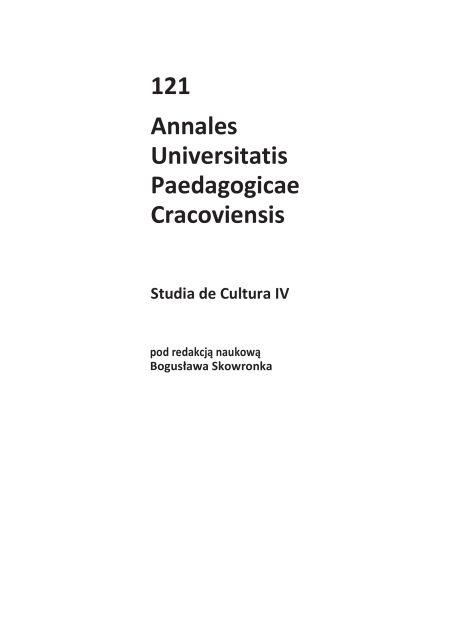Abstract
‘To dethrone the serious’. A sketch on ‘Camp’ in Polish prose
The author describes a mode of sensibility called ‘Camp’. She concentrates on the most characteristic features of it, especially on the ambivalence of any assessments, specific playful type of seriousness, theatricalization, artificiality, superior role of inverted commas and emphasis. While analyzing connections between Camp and homosexual subculture, the author stresses the role of the artists’ deepened self-consciousness and their deceitful distance towards their own works of art. Those features are especially noticeable in their playing with the conventions and with the principles of good taste. While describing the presence of Camp in the Polish literature, the author emphasises the roles of relativity, both aesthetical and moral. The elements of Camp are distinguished in the ‘banalistic’ literature and in the prose of Grzegorz Musiał, but the main part of the text is devoted to the prose of Michał Witkowski, in which we can find an intriguing combination of the sublimity and mockery, gloss and trumpery, spirituality and hedonism. Those features, inseparably connected with the stylistic of Camp, are constantly present in the prose of Witkowski. It makes him the most important representative of the discussed mode of sensibility in Poland.
References
Filipiak I., Kraina tysiąca płci, „Res Publica Nowa” 1997 nr 11.
View in Google Scholar
Grzeszczyk E., Camp, „Kultura i Społeczeństwo” 1997, nr 3.
View in Google Scholar
Ingvasson S., Niespodziewany koniec campu? 15 stacji na drodze do śmierci campu, w: CAMPania.
View in Google Scholar
Zjawisko campu we współczesnej kulturze, pod red. P. Oczki, Warszawa 2008.
View in Google Scholar
Lachman M., Gry z „tandetą” w prozie polskiej po 1989 roku, Kraków 2004.
View in Google Scholar
Mizerka A., Kamp po polsku, „Polonistyka” 2003, nr 10.
View in Google Scholar
Musiał G., Czeska biżuteria, Gdańsk 1983.
View in Google Scholar
Musiał G., Stan płynny, Kraków 1982.
View in Google Scholar
Sontag S., Notatki o kampie, przeł. W. Wertenstein, „Literatura na Świecie” 1979, nr 9.
View in Google Scholar
Turowska M., Czy CAMP potrzebny jest ubogim? O teatrze Romana Wikitiuka, przeł. K. Osińska, „Literatura na Świecie” 1994, nr 12.
View in Google Scholar
Warkocki B., Kwestia smaku, w: CAMPANIA. Zjawisko campu we współczesnej kulturze, pod red. P. Oczki, Warszawa 2008.
View in Google Scholar
Witkowski M., Barbara Radziwiłłówna z Jaworzna-Szczakowej, Warszawa 2007.
View in Google Scholar
Witkowski M., Lubiewo, Kraków 2005.
View in Google Scholar
Żurawiecki B., Erotica alla polacca. Nowele dramatyczne, Warszawa 2005.
View in Google Scholar

